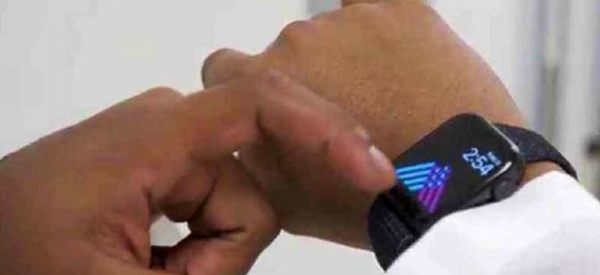
Predicting a virus such as COVID-19 is far better than waiting for symptoms to appear. With early notice you can take steps to ameliorate or treat a disease before it progresses too far. Early detection can also protect other people from infections by quarantining an asymptomatic person. The challenge of asymptomatic individuals who nevertheless infect others led Mount Sinai Health System Icahn School of Medicine investigators to launch the Warrior Watch Study. The study found that a custom Apple Watch app that tracked heart rate variability (HRV) could predict COVID-19 up to seven days before diagnosis.
The study report is available in preprint form on MedRxiv. The investigators produced a customized app thta measured HRV. A study group of 297 Mount Sinai health care works downloaded the app on iPhones and wore Apple Watches between April 29 and September 29, 2020. Study participants answered questions each day about a wide range of symptoms associated with COVID-19.
During the test period, 13 of the study participants reported positive SARS-CoV-2 PCR test results. Data analysis showed a significant difference in HRV among the people who reported positive tests compared to non-infected participants. The difference occurred up to seven days prior to a positive PCR test. Seven to 14 days after a positive test, the subject’s HRV was no longer significantly different from non-infected participants.
The Mount Sinai Warrior Watch Study is a small study that needs replication to support its conclusions. It was also a self-reported study that relied on voluntary notification when a subject received a positive test result. In addition, according to the study, the Apple Watch collected HRV data sporadically and only on one time domain. These limitations aside, the Warrior Watch study is a compelling argument for further exploration into the use of consumer wearable sensors in health care.

